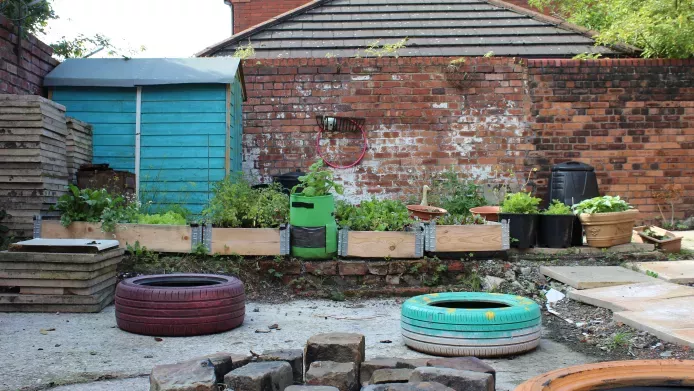We interviewed Katie and Jane who manage the project at Broom Grove Garden with UARE UK – United to Assist Refugees. Here they tell us how they are supporting refugees to develop new communities and a sense-of-self through gardening.
Broom Grove Garden was created following a successful community project set up by Katie, in the village of Overton just outside Wrexham. Transportation was provided for refugees living in Wrexham to travel to Overton to plant flowers and improve the area. When the project finished, participants said they had found the project therapeutic and wanted to continue.
We contacted Wrexham Council to see if they had any land we could turn into a community garden. Surprisingly, they said yes. It just so happened that they had abandoned allotments no one was using, and those became Broom Grove Garden. UARE UK’s involvement in this project stems from them connecting refugees to the Overton volunteering project. These refugees have spread the word to their friends about Broom Grove Garden and now we have a lot of volunteers from El Salvador.
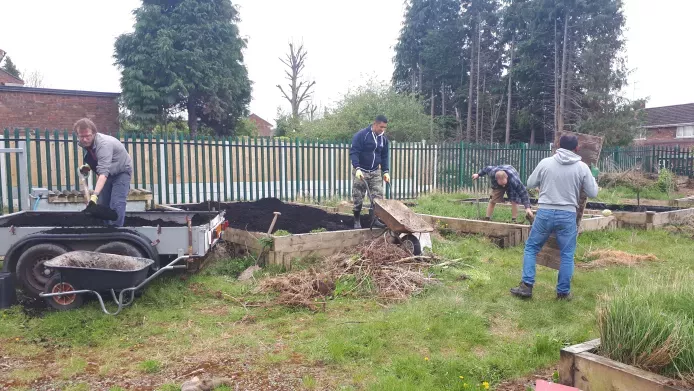
To start the project, we wanted to improve the condition of the beds so we could grow fruit and vegetables, then introduce a wildflower area and plant some trees donated by the Woodland Trust to encourage more wildlife. Because of the labour needed to manage such a large site we're trying to use the beds in a low energy way.
One of the reasons we wanted to make a wildflower bed is because once you’ve sown it, they don’t need much maintenance. We have sowed a mixture of cornfield annuals and hay meadow wildflowers but struggled with some of the large beds because of the hot weather so lots of the flowers came up and died quickly. Hopefully, next year we'll see some of the hay meadow species coming up and eventually those beds will be a permanent meadow.
It's been important for us to look at what grows where, as well as what pre-loved and locally sourced items can be used. When the allotment was unused people dumped waste soil and wood chippings in the space, so it has been a challenge to improve the site’s condition and clear the rubbish. We’ve tried to salvage as many resources as possible, turning waste materials into things like bug houses.
We filled an old bin that was left on the site with nettles to make nettle tea as well as fertilizer for the beds. A tree fell down so we cut it up and made it into seats, so that people have a peaceful space where they can sit down, really see what's there and think about what's around them.
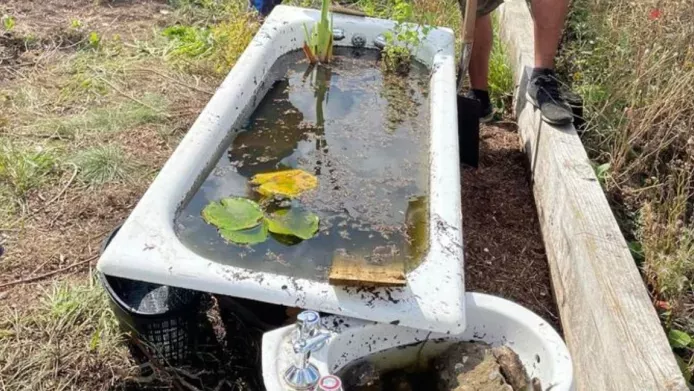
Grow Wild funding has helped us to move the project forward. Originally, we didn't have any money to work on the area, but we’ve now been able to buy tools, storage and plants. It’s also helped pay for a contractor to excavate segments of concrete using a mechanical digger. The site has raised beds on top of concrete and aggregate, so it was very difficult to dig into the ground by hand. We wanted to introduce a pond area to the garden so, to get around the issue of digging, we created container ponds using an old bath and bidet and then filled them with native aquatic plants. We’re hoping to create some more of these around the garden.
When we started the area was quite wild already with a lot of insects but we’re hoping in the long-term the ponds will create a more diverse space and in turn support more diverse wildlife. We’ve noticed lots of grasshoppers in the garden which some of the volunteers particularly enjoyed as they said the sound reminded them of home.
Neighbours had complained about the mess on site before we took it over. If we hadn't come along, it’s likely the council would have stripped the entire site or opened it up for building development, so we are protecting what's there and making it something that people can see as beautiful. People seemed grateful we were doing something with the site and there was a warm reception when locals saw us working, bringing us water and ice lollies on hot days or donating supplies they didn’t need.
'We are protecting what's there and making it something that people can see as beautiful.'
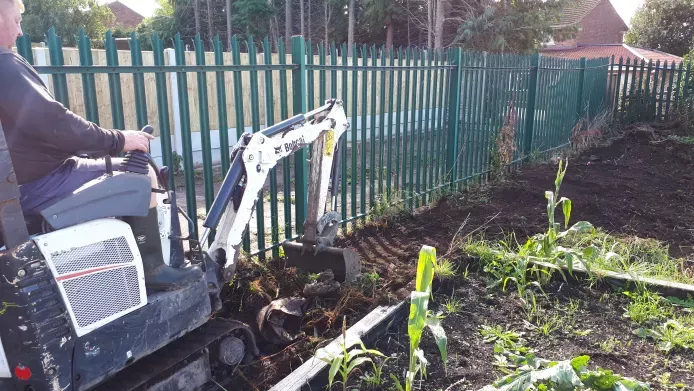
We had hoped to leave the gates open so people could use the garden whenever they wanted but neighbours were worried about antisocial behavior. We listened to their concerns and decided to put a code lock on the gates so that anyone we know who will use the garden responsibly can have the code and use it whenever they like without the neighbours worrying. If people feel a sense of ownership and feel involved, there's less likely to be problems.
'If people feel a sense of ownership and feel involved, there's less likely to be problems.'
Unfortunately, we've not always been able to engage with people who live surrounding the garden and sometimes kids sit in the alleyway that runs alongside the garden and do destructive things such as throw stones. If they could come into the community garden however, and use it in a constructive way, we're sure this could discourage such behaviour. We hope that once the space is more established, looking prettier and more like a garden, they will be more interested in joining in.
We find that the demand from people looking to join us is lower when people are looking after children and life's busy, so we are looking at how we can put a children's area into the space. If we provide children’s activities visiting the garden can become more of a family day out. We've bought a secondhand sandpit made from wooden pallets and one of the volunteers is going to make a mud kitchen for us so it's an interactive space.
One of our refugee volunteers said ‘the project is about putting something back and being part of a community’. People being able to come together and have space has an impact that shouldn't be underestimated. For many of the refugees, knowing they're the ones making this happen, rather than people doing stuff for them, has been important for their mental health and how they value themselves.
'The project is about putting something back and being part of a community'
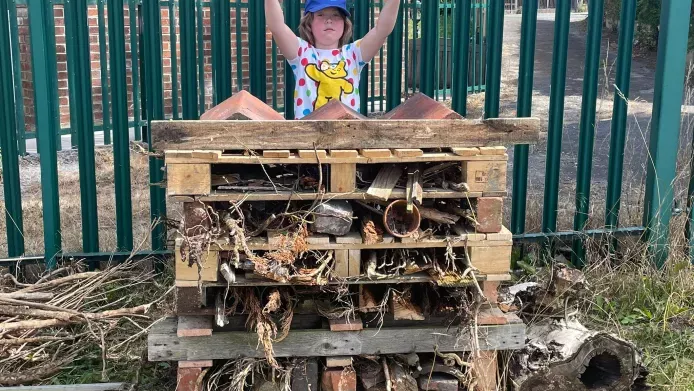
Grow Wild Community Grants
The project at Broom Grove Garden with UARE UK – United to Assist Refugees was one of seven projects supported by a Grow Wild Community Grant in 2022. If you're interested in applying for a grant or finding out more about the other groups funded, explore the resources below.
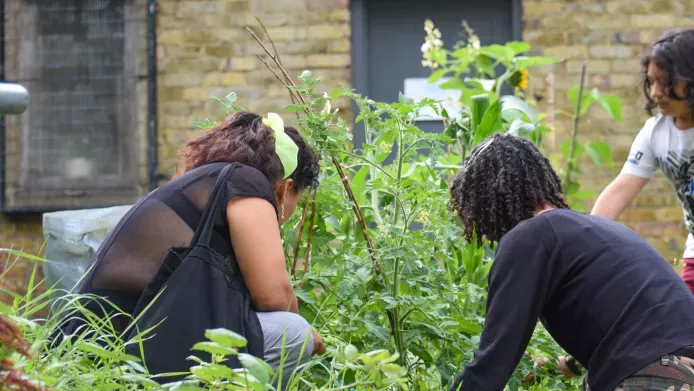
Community Programme
